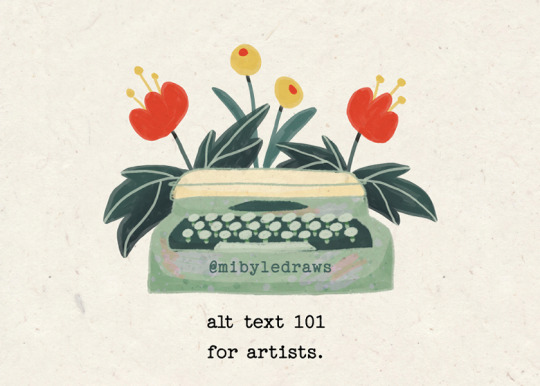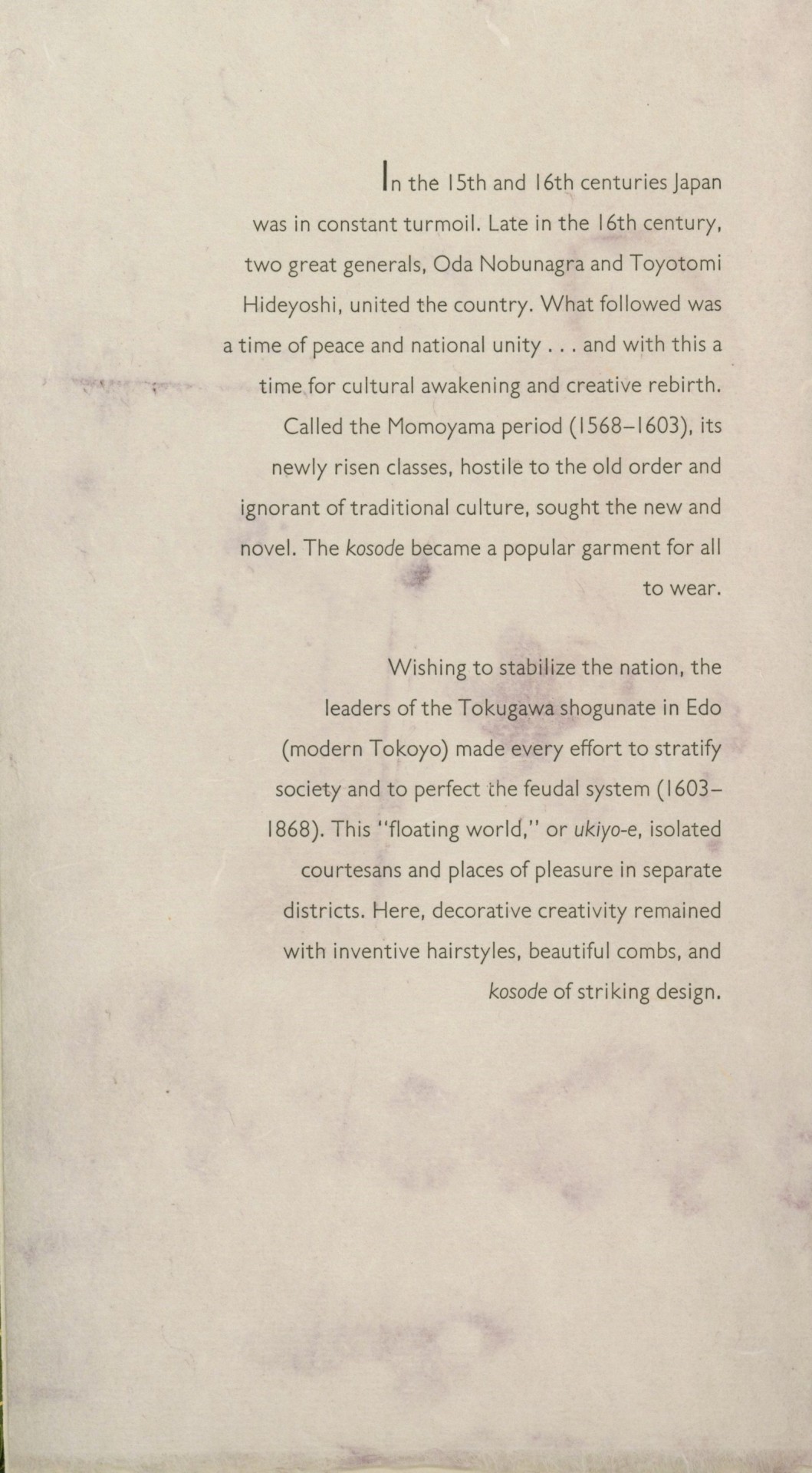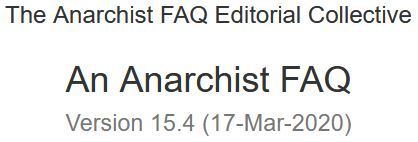#Section 125
Text

Section 125 premium only plan
Section 125 premiums only plan allows an employer to set up a Premium Only Plan (POP), where an employee's insurance premium contributions can be deducted from his or her payroll on a pre-tax basis. This can save employees up to 40% on income taxes and payroll taxes. The employer also saves on these taxes.
0 notes
Text

Section 125 Benefit Plan - Versa Business Systems - Maryland
In the realm of employee benefits, Section 125 plans stand out as a versatile tool that benefits both employers and employees. These plans, also known as cafeteria plans or flexible benefit plans, offer a range of advantages that contribute to financial stability, tax savings, and overall workplace satisfaction. For employers, implementing a Section 125 plan can result in significant cost savings and improved employee retention.
0 notes
Link
#section 125 crpc#very important observation by the honourable court said that Dr Anthony Raju Advocate Supreme court and leading Bail Expert dranthonyraju ba
0 notes
Text
Piper tri pacer maintenance manual
#http://vk.cc/c7jKeU#nofollow#<p> </p><p> </p><center>PIPER TRI PACER MAINTENANCE MANUAL >> <strong><u><a href= rel= target="_bl#<br>#<br> </p><p> </p><p> </p><p>A guide for the operation and maintenance of the Piper Tri-Pacer. Applicability: Piper PA-22#150-160hp 43 pages Illustrated This manual is a direct copy of#PIPER TRI PACER maintenance manual library PA22-125 / 135 w/ A/Ds - $39.99. FOR SALE! Piper never issued a service manual for the PA20/22 s#Description · Owner's Manual · Operation and Maintenance · for the · Piper · PA-22-150 · PA-22-160 · has 26 pages · SECTION ONE.#Piper Colt PA-22-108 Owner's Handbook 753-594. $13.95. Piper Colt PA-22-108 · Piper Tri-Pacer PA-22 Airplane Owners Handbook Operation and#Manuals. Description. Part No. PA-20 115 hp. Flight Manual.20FM115. PA-20 125 hp. Tri-Pacer (11752-001) . Original Piper ribs are listed in#Piper Aircraft PA-34-220 T Seneca IV V Airplane Maintenance Manual ; Piper Aircraft Pa-22 Tri-Pacer Owner's and Brochures Manuals.#THIS manual covers operation and maintenance of the. Piper Pacer and the Piper Tri-Pacer#Models PA-20 and. PA-22. These airplanes are basically similar#</p><br>#.
1 note
·
View note
Note
hello
Can you write one where the reader have money probleme that she hide form Eddie and she have a job to afford her basic need but she still struggled and when Eddie birthday come she do more hour to afford to buy him he gift and she even skip meal to not loose any money and Eddie end up finding this and they have a big argument during his birthday because of that and stop talking for week but he end up coming back and they have a happy ending
For You
Eddie Munson x reader
Warnings: TW disordered eating (sorta)
A/n: I always look forward to your requests because they challenge my writing and creativity
Fifteen Days Before Eddie's Birthday
****
Fifteen days until Eddie's birthday, thirteen days until your next paycheck, bills are due in sixteen days and you only have $125 in your bank account. Exhaustion pulls at your eyelids as you try to do the math in your budget journal.
"Groceries are almost $60, gas is $40," you whisper to yourself. You let out a sigh. You'll have $25 left over after just two things and still need a present for Eddie and pay bills afterwards. You scribble across your journal "fuck" over and over again, trying to think of how you'll get the money.
You could just ask your boyfriend for some help with groceries or bills. You could skip a gift all together and just take him on a cheap date. But you don't want him to worry about you, these are your problems not his. It's embarrassing to see how bad your finances have gotten.
"I need more hours," you say to yourself.
Twelve Days Before Eddie's Birthday
***
Your feet ache painfully as the twelfth hour of your double starts to sink in. The memory foam on your flats has worn off from the constant working, walking, standing. You push through it, taking yet another table in your section. A smile attempts to plaster itself into your face as you do your generic server greeting, but you end up coming off delirious. It doesn't help that your stomach growls loudly every time you hand a customer their food.
Nine Days Before Eddie's Birthday
Dinner was a mix of different customers' orders that had been sent back to the kitchen. As usual they were perfectly fine, just not perfect for the customer. Despite looking like a rat sneaking food in the kitchen, you felt better having something in your stomach after several days of not eating. You'd made $400 in tips so far and you weren't going to waste any of it. You had stopped driving to save on gas money and hadn't shopped for groceries in over a week.
Four Days Before Eddie's Birthday
Eighty hours. That's how much you have worked so far. Your apartment was a distant memory at this point. You'd stay at the dinner you work at to nap between shifts. Almost every coworker you have has given you one of their shifts out of pity. It was worth it in your mind. $800 in tips and your paycheck in two days was guaranteed to help with your boyfriend's gift and rent. With any luck you might have enough money to buy enough groceries to last a couple weeks.
Two Days Before Eddie's Birthday
Wind rushes past your face as you walk as fast as you can to cash your paycheck. Ninety hours of work translated to a $220 paycheck on top of all your tip money. It was just enough for you to get the perfect gift for Eddie and still afford rent. You slam the check in front of the bank teller a little too excitedly. She gives you a nasty look for startling her, but none of that matters to you. After the bank you head straight to your real destination, the record shop.
It's filled with every kind of music you can think of but you only came for one thing. Near the back of the shop was an aisle of classic rock and metal records from the 60s and 70s. Led Zeppelin, Black Sabbath, Judas Priest, and Kiss were some of Eddie's favorite bands and you had found a gold mine of vinyls he doesn't already own. You made a list of albums Eddie had talked about getting and peruse the aisle, picking up anything on your checklist.
The cost of Eddie's gifts was just over $300 not including the gift wrap and birthday decorations you bought for his party. You went slightly over your budget, but there's still enough for your rent. You might have to live off of customers' sent back orders again but that thought is at the back of your mind at the moment. All you can think about is your beautiful boyfriend's face when he sees his gifts.
Eddie's Birthday
***
Party streamers, balloons, and a big Happy Birthday banner decorate your tiny apartment. A Walmart sheet cake sits on your coffee table with two candles, marking your boyfriend's 20th birthday. All of Eddie's D&D group huddle around eating pizza brought by Mike and sipping coke, possibly spiked with rum, brought by Eddie.
"Thank you guys for coming to celebrate my boyfriend's birthday! A special thank you to Mike and Eddie for providing extra food and drinks since I forgot to get them. Everyone put your gifts in a neat pile next to the couch," you announce.
Eddie sits on the couch gleefully as he's presented with presents. His lopsided birthday crown lays gently on his messy brown curls and his smile is from ear to ear.
"Let's see what you cheap asses got me. Which one should I open first?" Eddie teases. He pulls you into his lap and inspects the different boxes and gift bags.
"Oh, do me first," Dustin raises his hand with a smile before Eddie finishes his sentence.
Dustin's gift is a set of metal Ral Partha DnD figurines. All of them have intricate details and look amazing, even to a non DnD player like yourself.
"Thanks Henderson, we'll use these for our next campaign," Eddie says, turning them around in his hand.
The next few gifts follow a similar theme minus a random deck of cards and a new rolling tray, which your boyfriend was very grateful for. Finally Eddie gets to your gift.
"Saved the best for last," Eddie says, giving you a little pinch on the butt. You quickly swat away his hand with a giggle.
Your boyfriend removes the tissue paper from your bag at a dramatically slow pace. He pulls out the first record, Black Sabbath's Technical Ecstasy vinyl from 1976. His chocolate eyes widen with kid-like joy as he inspects it. He gently places it on the coffee table next to the cake and brings out another vinyl, Judas Priest's British Steel album.
"Babe," he whispers as he quickly rifles through the bag, "these are amazing! How did you know I wanted these? It must have cost a fortune for you to get all of these."
"You talk about them literally all the time, baby. I just made a list of the ones you talked about the most and made sure you didn't have them yet," you reply. Eddie smothers you with cheek and forehead kisses, not caring about anyone else in the room.
"All of your gifts suck compared to her's," Eddie jokes.
The rest of the party was spent eating cake and talking about future plans. By the end of the night your apartment was a mess of wrapping paper and deflated balloons. After everyone files out for the night, Eddie stays back to help you clean up.
"Sorry about the mess babe, I forgot how gross these guys are," Eddie apologizes while picking up scraps of paper.
"It's fine, I'm just glad everyone had fun."
You stack the leftover pizza into your fridge along with a final slice of birthday cake. The inside of the refrigerator looks depressing and barren with just those two items in there.
"Damn, you need groceries," Eddie comes up behind you. You reflexively shut the fridge door.
"No, I'm good for the next few days. I'll just live off the leftovers till they're gone."
"Let's just pick up a few things while the store is still open. You'll have to get them eventually," Eddie lightly flicks your forehead.
You walk out of the kitchen and sit on the couch, fidgeting with your fingers nervously.
"I can't!" Your voice cracks a little at your sudden outburst.
"Why not?" Eddie moves to the seat next to you. He wraps a gentle arm around your shoulders.
"I have to pay rent tomorrow and I won't have enough left for groceries. I'm fine though I've got leftover pizza and whatever gets sent back to the kitchen at work!" All the words just spew out for your mouth before you can stop yourself.
"Don't tell me you spent most of your money on my birthday gift," Eddie scoffs. The look in your eyes is the only answer he needs. "Honey, why do you do this? You did this last Christmas and every holiday before that!"
"I'm sorry, I was just trying to get you something nice Eddie," your voice cracks as you speak.
"You could get me a flower off the sidewalk and I'd be happy. I don't need $300 worth of records or a new guitar! And I don't need a girlfriend who can't even be a functional adult and watch her spending."
Eddie jumps from the couch, gathering all of his things except the records.
"Return them," is all he says before he walks out of your apartment.
The deafening silence is broken by your gentle sobs as you sink deeper into your couch. You did all of this for him, but he was right. You're twenty-years-old and can barely keep enough money for food after buying an obnoxious amount of unnecessary things. You overworked yourself just to go broke again.
You look over at the solitary bag of records sitting in the middle of the room. I know what I have to do.
One Week After Eddie's Birthday
***
The records are gone, your rent has been paid, and your fridge is filled with groceries. Even with everything full and paid off, you still felt empty without Eddie. You haven't tried to call him since the argument, but you thought about him every day. Still, you continue to focus on yourself and work and save.
Your mind is distracted from the topic of your ex by a busy mid-shift. Customers just spill into seats faster than you can say ‘Hello’. The hostess seats another person in your section when you turn your back. You give her a look of frustration, knowing it's not her fault, but she mouths a little ‘sorry’ before going back to her stand.
Your body moves on autopilot to your new table as your feet scream in agony. You're just about to do your greeting when you see who's sitting down. Eddie.
“I-uh, Hi,” you say with a confused stutter.
“Hey,” Eddie replies in a nervous tone.
“What can I get you?”
“I wanted to talk. I know you're working, but just pretend like you're talking my order.”
“Eddie, I can't. There are tables that need my attention,” you sigh.
Eddie fiddles in his pocket for a minute before pulling out a $50 bill.
“$50 tip and all you need to do is listen,” Eddie pleads, sliding the bill towards you. You silently put the tip in your server book and wait for him to speak.
“I'm sorry, I didn't mean to yell at you or shame you for buying me such a nice gift. I just wanted you to be okay and take care of yourself and not worry about getting me so expensive. I love you so much and I know I don't deserve a second chance because of how I acted. I just wanted to say I'm sorry for everything. I was the immature one not you.”
“I can't do this right now, Eddie.”
“You don't have to respond, just know that I'm sorry.” Eddie gets up to leave but you stop him.
“My break is in ten minutes, I'll meet you outside,” you say, before walking away from his table.
The next ten minutes are excruciating. All you can think about are his words. What do you say? Go fuck yourself? I forgive you? Your mind races all the way up until your boss lets you off on your fifteen.
The parking lot is almost completely empty except for Eddie's dingy van sitting in a more secluded area. You walk over and knock on the passenger side window. Eddie quickly unlocks the door for you.
“Thank you for meeting me,” Eddie says with a smile on his face.
“I have a lot to say, so just be quiet for a sec,” you reply, getting into the van. “You were right, I needed to become a functional adult. And even though you were right, you were still wrong for yelling at me and making me feel like shit. I forgive you, but it's going to take more than that to fix our relationship.”
Silence fills the small space of the van before Eddie speaks again. “I'm sorry, I really am. Can we start over? Not pretend like this didn't happen, but rebuild trust and love for each other?”
“I would love that.”
“Okay,” Eddie grins from ear to ear.
“Okay,” you say, not being able to hide your own smile.

#black reader#reader insert#chubby black reader#black girl reader#black!fem!reader#fanfic#chubby reader#reader insert fluff#eddie x fem!reader#eddie x y/n#eddie x reader#eddie munson#eddie munson imagine#eddie munson x reader#eddie munson stranger things#eddie munson x black!reader#eddie munson x you#eddie munson x plus size reader#eddie munson x y/n#eddie munson x female reader#tw disordered eating
193 notes
·
View notes
Text
' 𝓣𝓱𝓮 𝓑𝓮𝓼𝓽 𝓕𝓻𝓲𝓮𝓷𝓭𝓼 𝓔𝓿𝓮𝓷𝓽 '



To celebrate the occasion of hitting my 332 follower, I m honored to host my second event 'the best friends event' . My first event was 'the fashion event' in which condidats was challenged to make a moodboard with a fashion brand of my own choice . And today, here I am coming with a totally new idea, ofc after checking and doing my own research. I decided to host a new event under the name of 'best friends event' .

𝓒𝓸𝓷𝓬𝓮𝓹𝓽 :
The word 'best friends' refers to a strong bond between two or a group of individuals. A best friend is like the sun, always shining and brightening up your world, lifting your spirits when you feel down. They are like a compass, guiding you through the darkest of storms, and always there when you most need them. A best friend is a shoulder to cry on, an ear to listen, a hand to hold when you fall, and a heart that beats for you and yours. They are family, chosen and loved, a friend you can count on in any and every situation. A best friend is a gift, a treasure, a blessing, a light in your life, a love that's strong and true, the kind of friendship that will last a lifetime, through the highs and lows.

𝓗𝓸𝔀 𝓣𝓸 𝓙𝓸𝓲𝓷:
1. Like and reblog the event's post and mention three of your moots. Comment 'joining' in the comments section to claim your entry as a participant .
2. You are demanded to make a mb with the duo that you will get after spinning the wheel .
3. Make sure to tag me on the moodboard and use the #best friends berry-event , do not copy other's moodboards because if you do, you will be eliminated .
Start: 05 may 2024
Deadline: 31 may 2024

𝓟𝓻𝓲𝔃𝓮𝓼:
Dm me later to claim your prize .
For 🥇: a s/o, 500 reblog, 30 like, 2 set of dividers and a pack of aesthetic symbols .

For 🥈: a s/o, 250 reblog, 15 like, 1 set of dividers and a pack of aesthetic symbols .

For 🥉: 125 reblog, 7 like, a set of dividers .

𝓕𝓸𝓻 𝓯𝓾𝓷:
For fun, I will make for the 6 winners of my choice a matching mb so they can match with their besties 🫶🏻 .

Tags(n/f): @yeritos @p-oisn @minjuszns @miublogsite @miumiudaga @mingisito @mjngs @fairytopea @obrigados @aegsll @gigittamic @compyuqiter @ourdadai @f-lustra @fairymiese @f-loqweres @f-eori @i-kyujin @estrellicas @eunsite @egorls @endlesslywe @v6mpcat @i6gyu @i0410 @i9hyein @hyetori @venrthaa @daddldee @yeribbon @yenagorls @yumjins @pommecita @poicelain @p-osse @pliestar .
F/n: finally I m making my second event I m so proud and I would like to thank everyone who supported and still support me through my first year in Tumblr. Special thanks to my besties @yeritos , @p-oisn and @winteryeoni (I missed u baby:(() thank you guys because yall are really my only besties here 🫶🏻. Enjoy making moodboards yall because the whole propose of this event is making friends and enjoying .
59 notes
·
View notes
Text
A.N.I.M. Semi-Emergency Donation Post

Alright, so, due to a mistake I made in budgeting, our small company bank account is about $-125 in the red right now.
This is a bit of a problem, as it will take our Patreon income more than a month to cover this deficit. So, we are making a call for ko-fi donations.
Anyone who helps us out by donating will get all the currently most up-to-date prerelease Eureka: Investigative Urban Fantasy PDF materials as a thank-you. (That’s the whole rulebook, character sheets, three adventure modules, two short stories, and one novella.)
Donate to our ko-fi here
To get the PDFs as promised visit our website and scroll down to the Contact Us section to get our company email address. Email us a screenshot of you donating, and we will email you back with the PDFs. (You can also contact one of us on discord if you happen to, like, know us or you’re in the A.N.I.M. TTRPG Book Club Server)
If you want to support us long-term of course, you can subscribe to our Patreon for $5 and get all the same rewards + perpetual updates to the materials as we continue to work on and improve them.
At the time of writing this:
$0/$125

#eureka#eureka: investigative urban fantasy#rpg#ttrpg#roleplaying#tabletop#help#ttrpgs#ttrpg tumblr#indie ttrpg#ttrpg community#ttrpg design#horror
79 notes
·
View notes
Text
alt text 101 for artists

I’m not an accessibilty expert, but I gathered these tips here and there, and it has really been helping me writing better alt texts - and I hope they will help others too!
Alternative text is a description of an image that can be read by a screen reader. It also can help the understanding of an image for
people who don't use screen readers.
What do you write?
It all goes down to including what is relevant to give the user an accurate idea of your artwork:
the medium you used to make the artwork (is it a digital illustration? a traditional oil painting? a graphite pencil sketchbook doodle?)
the subject of the artwork
anything that is relevant for understanding the meaning of the artwork. For instance, is the lighting important, or does it bring a particular meaning or mood?
Write sentences - don’t just throw away key words. EDIT: don't write full sentences, but phrases and fragments to keep your description concise
adding one more thing after getting feedback: keep it concise! Under 125 characters (even 100 is best)
Where/how do I add it?
The alt text feature is more or less obvious on the apps we usually post on. In doubt, please just search for it on a web browser, you’ll find how to add it in the blink of an eye :)
On Twitter
enable the alt text reminder! Everytime you post an image, it will remind you to add alt text if you forgot it. Go in your settings, then “accessibility, display and languages”. Then “accessibility”, and in the media section, check the “receive image description reminder” box.
on web browser: once you’ve uploaded your image, click on “add description” under it.
on the app: once you’ve uploaded your image, click on the “+alt” bubble in the right bottom corner that appeared on your image.
On Instagram
at the bottom of the posting page, go in “advanced settings”, then “accessibility”, then “write the alt text”.
On Tumblr
once you’ve uploaded your image, click on the three dots icon that appears when your mouse is on the image, then click on “update the description”.
On Mastodon
once you’ve uploaded your image, click on the “description missing” message that appears on it.
On your website (portfolio, shops, etc)
Where and how you can add it depends on the platforms but there’s always a way! My tip for this would be to schedule yourself an alt text audit of your website to take a moment when you would search how to do it and when you would add all the necessary alt texts! I’d also encourage you to pay attention to some other accessibility features - for instance contrast between background and text. There are lots of ressources out there and I admit it can sound overwhelming: digital accessibility is an expertise, a job field in itself after all. In my opinion, taking it a few steps at a time is a good way to go! For instance I like to do little accessibility audits of my portfolio every once in a while and check a new area that I might have missed before.
I forgot to add it, what should I do?
On some platforms, you can add it after posting if needed - it’s the case on the Instagram app for instance. Always try to see if you can add it afterwards. If you can’t, add it in the replies (if it’s on twitter for instance) or edit the body/caption of your post if you can change this but can’t change the alt text.
Adding it as a “simple description” instead of an alt text that will be read by a screen reader in lieu of the image isn’t perfect, but having it somewhere very close to the image in plain text that will get to be read by screen readers is way better than nothing to my knowledge :)
It's Disability Pride Month (July, when I'm writing this)
I wanted to take some time to encourage you to take some time and energy this month, and at anytime of the year, when you can, to learn about Disability Justice. I’m not the best at explaining what it is, and how much there is at stake. I’m better at this, making small guides about what fellow artists can do to make their work more welcoming to disabled people. But it doesn’t mean Disability Justice isn’t close to my heart and that I shouldn’t even mention it.
There’s a documentary about the Disability Rights movement that I can only highly recommend - it’s Crip Camp. It’s on netflix, and even watchable in full on Youtube.
youtube
Pay attention to us, disabled people, to what we have to say.
”Nothing about us without us”: our perspectives and opinions are those you must focus on when it comes to disability and to our lives.
#disabled artist#disability pride month#disability community#artists on tumblr#art community#illustration#artist on tumblr#illustrators on tumblr#cute art#accessiblity#art resources#art tips#tips for artists#Youtube
170 notes
·
View notes
Text











Staff Pick of the Week
For today’s staff pick, I want to share another book from the collection of our late friend Dennis Bayuzick, entitled Kimono| Kosode: A Decorative Study of the Kimono. Designed and bound by Carol Schwartzott (b. 1945), this book uses Japanese Chiyogami paper as the ‘fabric’ for the kimonos between archival boards throughout the book. The book explains to readers the history of the Japanese kimono’s creation and augments the information with beautiful decorative elements. Each fold-out includes a cut-out kimono as well as a heading and short section about the topic introduced in the heading. Another interesting feature of this book is its binding; it uses a piano-hinge binding designed by Hedi Kyle (b. 1937) and the patterned paper can also be seen wrapped around the dowels that make up the binding.
The book discusses the origins of the kimono, which was once called a kosode, and goes into detail about the historical periods when the garment gained popularity, explaining how “[with] each period in history, the kosode evolved, adapting its design and decorative elements to current style…”

Printed in an edition of 125 copies by Blacks Corner Letterpress with Monotype Gill Sans Light cast by the Bixler Press & Letterfoundry, this book was created for the Library Fellows of the National Museum of Women in the Arts in Washington DC in December of 2001.
View more Staff Picks.
View other books from the collection of Dennis Bayuzick.
– Sarah S., Special Collections Graduate Intern.
#staff pick of the week#kosode#kimono#national museum of women in the arts#Dennis Bayuzick#Carol Schwartzott#Japanese Chiyogami paper#japan#piano binding#Hedi Kyle#Blacks Corner Letterpress#Monotype Gill Sans Light#Bixler Press & Letterfoundry#Sarah S.
86 notes
·
View notes
Text
Understanding the Essentials of a Section 125 POP Document
Employee benefits are a vital part of any organization's compensation package. Among the tools available to streamline these benefits, a Section 125 Premium-Only Plan (POP) document is crucial for both employers and employees. Let's delve into what a Section 125 POP document is and why it's significant.

Eligible Benefits
A Section 125 POP document typically covers various employee benefits, such as health insurance premiums, dental and vision coverage, and contributions to flexible spending accounts (FSAs). By allocating pre-tax dollars to these benefits, employees can maximize their take-home pay and employer-provided benefits.
Tax Benefits for Employers
Employers also benefit from a Section 125 POP document. By offering this plan, they can save on payroll taxes, as contributions made by employees through the POP plan are not subject to federal income, Social Security, or Medicare taxes. This creates a win-win situation where both employees and employers enjoy financial advantages.
Ease of Administration
Section 125 POP plans are relatively easy to administer, and they can be a cost-effective way for employers to enhance their overall benefits package. By offering a POP document, employers can provide more competitive benefits without significantly increasing their administrative burdens.

Legal Compliance
To ensure the POP plan is compliant with federal regulations, it is essential to have a well-drafted Section 125 POP document. Employers should work with legal and benefits professionals to create and maintain the plan in accordance with IRS guidelines.
Employee Choice and Flexibility
Section 125 POP plans give employees more control and flexibility over their benefits. They can select the benefits that best suit their needs and financial situation, making it a versatile option for a diverse workforce. In conclusion, a Section 125 POP document is a valuable tool that can benefit both employers and employees. It allows employees to take advantage of pre-tax contributions for various benefits, reducing their tax liability and increasing their take-home pay.
0 notes
Text
Section 125 Benefit Plans - Versa Business Systems - Maryland
These plans, also known as cafeteria plans or flexible benefit plans, offer a range of advantages that contribute to financial stability, tax savings, and overall workplace satisfaction. For employers, implementing a Section 125 plan can result in significant cost savings and improved employee retention. One of the primary benefits is the ability to offer pre-tax deductions for eligible expenses, such as health insurance premiums, dependent care expenses, and certain qualified benefits. By allowing employees to pay for these expenses with pre-tax dollars, employers can reduce their payroll taxes, leading to substantial savings over time. Visit Versa Business Systems for more information.
0 notes
Text

E.2 What do eco-anarchists propose instead of capitalism?
Given what eco-anarchists consider to be the root cause of our ecological problems (as discussed in the last section), it should come as no surprise that they think that the current ecological crisis can only be really solved by eliminating those root causes, namely by ending domination within humanity and creating an anarchist society. So here we will summarise the vision of the free society eco-anarchists advocate before discussing the limitations of various non-anarchist proposals to solve environmental problems in subsequent sections.
However, before so doing it is important to stress that eco-anarchists consider it important to fight against ecological and social problems today. Like all anarchists, they argue for direct action and solidarity to struggle for improvements and reforms under the current system. This means that eco-anarchism “supports every effort to conserve the environment” in the here and now. The key difference between them and environmentalists is that eco-anarchists place such partial struggles within a larger context of changing society as a whole. The former is part of “waging a delaying action against the rampant destruction of the environment” the other is “a create movement to totally revolutionise the social relations of humans to each other and of humanity to nature.” [Murray Bookchin, Toward an Ecological Society, p. 43] This is one of the key differences between an ecological perspective and an environmental one (a difference discussed in section E.1.2). Finding ways to resist capitalism’s reduction of the living world to resources and commodities and its plunder of the planet, our resistance to specific aspects of an eco-cidal system, are merely a starting point in the critique of the whole system and of a wider struggle for a better society. As such, our outline of an ecological society (or ecotopia) is not meant to suggest an indifference to partial struggles and reforms within capitalism. It is simply to indicate why anarchists are confident that ending capitalism and the state will create the necessary preconditions for a free and ecologically viable society.
This perspective flows from the basic insight of eco-anarchism, namely that ecological problems are not separate from social ones. As we are part of nature, it means that how we interact and shape with it will be influenced by how we interact and shape ourselves. As Reclus put it “every people gives, so to speak, new clothing to the surrounding nature. By means of its fields and roads, by its dwelling and every manner of construction, by the way it arranges the trees and the landscape in general, the populace expresses the character of its own ideals. If it really has a feeling for beauty, it will make nature more beautiful. If, on the other hand, the great mass of humanity should remain as it is today, crude, egoistic and inauthentic, it will continue to mark the face of the earth with its wretched traces. Thus will the poet’s cry of desperation become a reality: ‘Where can I flee? Nature itself has become hideous.’” In order to transform how we interact with nature, we need to transform how we interact with each other. “Fortunately,” Reclus notes, “a complete alliance of the beautiful and the useful is possible.” [quoted by Clark and Martin (eds.) , Anarchy, Geography, Modernity, p. 125 and p. 28]
Over a century later, Murray Bookchin echoed this insight:
“The views advanced by anarchists were deliberately called social ecology to emphasise that major ecological problems have their roots in social problems — problems that go back to the very beginnings of patricentric culture itself. The rise of capitalism, with a law of life based on competition, capital accumulation, and limitless growth, brought these problems — ecological and social — to an acute point; indeed, one that was unprecedented in any prior epoch of human development. Capitalist society, by recycling the organise world into an increasingly inanimate, inorganic assemblage of commodities, was destined to simplify the biosphere, thereby cutting across the grain of natural evolution with its ages-long thrust towards differentiation and diversity.
“To reverse this trend, capitalism had to be replaced by an ecological society based on non-hierarchical relationships, decentralised communities, eco-technologies like solar power, organic agriculture, and humanly scaled industries — in short, by face-to-face democratic forms of settlement economically and structurally tailored to the ecosystems in which they were located.” [Remaking Society, pp. 154–5]
The vision of an ecological society rests on the obvious fact that people can have both positive and negative impacts on the environment. In current society, there are vast differences and antagonisms between privileged whites and people of colour, men and women, rich and poor, oppressor and oppressed. Remove those differences and antagonisms and our interactions with ourselves and nature change radically. In other words, there is a vast difference between free, non-hierarchical, class, and stateless societies on the one hand, and hierarchical, class-ridden, statist, and authoritarian ones and how they interact with the environment.
Given the nature of ecology, it should come as no surprise that social anarchists have been at the forefront of eco-anarchist theory and activism. It would be fair to say that most eco-anarchists, like most anarchists in general, envision an ecotopia based on communist-anarchist principles. This does not mean that individualist anarchists are indifferent to environmental issues, simply that most anarchists are unconvinced that such solutions will actually end the ecological crisis we face. Certain of the proposals in this section are applicable to individualist anarchism (for example, the arguments that co-operatives will produce less growth and be less likely to pollute). However, others are not. Most obviously, arguments in favour of common ownership and against the price mechanism are not applicable to the market based solutions of individualist anarchism. It should also be pointed out, that much of the eco-anarchist critique of capitalist approaches to ecological problems are also applicable to individualist and mutualist anarchism as well (particularly the former, as the latter does recognise the need to regulate the market). While certain aspects of capitalism would be removed in an individualist anarchism (such as massive inequalities of wealth, capitalist property rights as well as direct and indirect subsidies to big business), it is still has the informational problems associated with markets as well as a growth orientation.
Here we discuss the typical eco-anarchist view of a free ecological society, namely one rooted in social anarchist principles. Eco-anarchists, like all consistent anarchists advocate workers’ self-management of the economy as a necessary component of an ecologically sustainable society. This usually means society-wide ownership of the means of production and all productive enterprises self-managed by their workers (as described further in section I.3). This is a key aspect of making a truly ecological society. Most greens, even if they are not anarchists, recognise the pernicious ecological effects of the capitalist “grow or die” principle; but unless they are also anarchists, they usually fail to make the connection between that principle and the hierarchical form of the typical capitalist corporation. The capitalist firm, like the state, is centralised, top-down and autocratic. These are the opposite of what an ecological ethos would suggest. In contrast, eco-anarchists emphasise the need for socially owned and worker self-managed firms.
This vision of co-operative rather than hierarchical production is a common position for almost all anarchists. Communist and non-communist social anarchists, like mutualists and collectivists, propose co-operative workplaces but differ in how best to distribute the products produced. The former urge the abolition of money and sharing according to need while the latter see income related to work and surpluses are shared equally among all members. Both of these systems would produce workplaces which would be under far less pressure toward rapid expansion than the traditional capitalist firm (as individualist anarchism aims for the abolition of rent, profit and interest it, too, will have less expansive workplaces).
The slower growth rate of co-operatives has been documented in a number of studies, which show that in the traditional capitalist firm, owners’ and executives’ percentage share of profits greatly increases as more employees are added to the payroll. This is because the corporate hierarchy is designed to facilitate exploitation by funnelling a disproportionate share of the surplus value produced by workers to those at the top of the pyramid (see section C.2) Such a design gives ownership and management a very strong incentive to expand, since, other things being equal, their income rises with every new employee hired. [David Schweickart, Against Capitalism, pp. 153–4] Hence the hierarchical form of the capitalist corporation is one of the main causes of runaway growth as well as social inequality and the rise of big business and oligopoly in the so-called “free” market.
By contrast, in an equal-share worker co-operative, the addition of more members simply means more people with whom the available pie will have to be equally divided — a situation that immensely reduces the incentive to expand. Thus a libertarian-socialist economy will not be under the same pressure to grow. Moreover, when introducing technological innovations or facing declining decline for goods, a self-managed workplace would be more likely to increase leisure time among producers rather than increase workloads or reduce numbers of staff.
This means that rather than produce a few big firms, a worker-controlled economy would tend to create an economy with more small and medium sized workplaces. This would make integrating them into local communities and eco-systems far easier as well as making them more easily dependent on green sources of energy. Then there are the other ecological advantages to workers’ self-management beyond the relative lack of expansion of specific workplaces and the decentralisation this implies. These are explained well by market socialist David Schweickart:
“To the extent that emissions affect the workers directly on the job (as they often do), we can expect a self-managed firm to pollute less. Workers will control the technology; it will not be imposed on them from without.
“To the extent that emissions affect the local community, they are likely to be less severe, for two reasons. Firstly, workers (unlike capitalist owners) will necessarily live nearby, and so the decision-makers will bear more of the environmental costs directly. Second … a self-managed firm will not be able to avoid local regulation by running away (or threatening to do so). The great stick that a capitalist firm holds over the head of a local community will be absent. Hence absent will be the macrophenomenon of various regions of the country trying to compete for firms by offering a ‘better business climate’ (i.e. fewer environmental restrictions).” [Op. Cit., p. 145]
For an ecological society to work, it requires the active participation of those doing productive activity. They are often the first to be affected by industrial pollution and have the best knowledge of how to stop it happening. As such, workplace self-management is an essential requirement for a society which aims to life in harmony with its surrounds (and with itself, as a key aspect of social unfreedom would be eliminated in the form of wage slavery).
For these reasons, libertarian socialism based on producer co-operatives is essential for the type of economy necessary to solve the ecological crisis. These all feed directly into the green vision as “ecology points to the necessity of decentralisation, diversity in natural and social systems, human-scale technology, and an end to the exploitation of nature.” [John Clark, The Anarchist Moment, p. 115] This can only be achieved on a society which bases itself on workers’ self-management as this would facilitate the decentralisation of industries in ways which are harmonious with nature.
So far, all forms of social anarchism are in agreement. However, eco-anarchists tend to be communist-anarchists and oppose both mutualism and collectivism. This is because workers’ ownership and self-management places the workers of an enterprise in a position where they can become a particularistic interest within their community. This may lead to these firms acting purely in their own narrow interests and against the local community. They would be, in other words, outside of community input and be solely accountable to themselves. This could lead to a situation where they become “collective capitalists” with a common interest in expanding their enterprises, increasing their “profits” and even subjecting themselves to irrational practices to survive in the market (i.e., harming their own wider and long-term interests as market pressures have a distinct tendency to produce a race to the bottom — see section I.1.3 for more discussion). This leads most eco-anarchists to call for a confederal economy and society in which communities will be decentralised and freely give of their resources without the use of money.
As a natural compliment to workplace self-management, eco-anarchists propose communal self-management. So, although it may have appeared that we focus our attention on the economic aspects of the ecological crisis and its solution, this is not the case. It should always be kept in mind that all anarchists see that a complete solution to our many ecological and social problems must be multi-dimensional, addressing all aspects of the total system of hierarchy and domination. This means that only anarchism, with its emphasis on the elimination of authority in all areas of life, goes to the fundamental root of the ecological crisis.
The eco-anarchist argument for direct (participatory) democracy is that effective protection of the planet’s ecosystems requires that all people are able to take part at the grassroots level in decision-making that affects their environment, since they are more aware of their immediate eco-systems and more likely to favour stringent environmental safeguards than politicians, state bureaucrats and the large, polluting special interests that now dominate the “representative” system of government. Moreover, real change must come from below, not from above as this is the very source of the social and ecological problems that we face as it divests individuals, communities and society as a whole of their power, indeed right, to shape their own destinies as well as draining them of their material and “spiritual” resources (i.e., the thoughts, hopes and dreams of people).
Simply put, it should be hardly necessary to explore in any great depth the sound ecological and social reasons for decentralising decision making power to the grassroots of society, i.e. to the people who have to live with the decisions being reached. The decentralised nature of anarchism would mean that any new investments and proposed solutions to existing problems would be tailored to local conditions. Due to the mobility of capital, laws passed under capitalism to protect the environment have to be created and implemented by the central government to be effective. Yet the state, as discussed in section E.1, is a centralised structure unsuited to the task of collecting and processing the information and knowledge required to customise decisions to local ecological and social circumstances. This means that legislation, precisely due to its scope, cannot be finely tuned to local conditions (and so can generate local opposition, particularly if whipped up by corporate front organisations). In an eco-anarchist society, decentralisation would not have the threat of economic power hanging over it and so decisions would be reached which reflected the actual local needs of the population. As they would be unlikely to want to pollute themselves or their neighbours, eco-anarchists are confident that such local empowerment will produce a society which lives with, rather than upon, the environment.
Thus eco-communities (or eco-communes) are a key aspect of an ecotopia. Eco-communes, Bookchin argued, will be “networked confederally through ecosystems, bioregions, and biomes” and be “artistically tailored to their naturally surrounding. We can envision that their squares will be interlaced by streams, their places of assembly surrounded by groves, their physical contours respected and tastefully landscaped, their soils nurtured caringly to foster plant variety for ourselves, our domestic animals, and wherever possible the wildlife they may support on their fringes.” They would be decentralised and “scaled to human dimensions,” using recycling as well as integrating “solar, wind, hydraulic, and methane-producing installations into a highly variegated pattern for producing power. Agriculture, aquaculture, stockraising, and hunting would be regarded as crafts — an orientation that we hope would be extended as much as possible to the fabrication of use-values of nearly all kinds. The need to mass-produce goods in highly mechanised installations would be vastly diminished by the communities’ overwhelming emphasis on quality and permanence.” [The Ecology of Freedom, p. 444]
This means that local communities will generate social and economic policies tailored to their own unique ecological circumstances, in co-operation with others (it is important stress that eco-communes do not imply supporting local self-sufficiency and economic autarchy as values in themselves). Decisions that have regional impact are worked out by confederations of local assemblies, so that everybody affected by a decision can participate in making it. Such a system would be self-sufficient as workplace and community participation would foster creativity, spontaneity, responsibility, independence, and respect for individuality — the qualities needed for a self-management to function effectively. Just as hierarchy shapes those subject to it in negative ways, participation would shape us in positive ways which would strengthen our individuality and enrich our freedom and interaction with others and nature.
That is not all. The communal framework would also impact on how industry would develop. It would allow eco-technologies to be prioritised in terms of R&D and subsidised in terms of consumption. No more would green alternatives and eco-technologies be left unused simply because most people cannot afford to buy them nor would their development be under-funded simply because a capitalist sees little profit form it or a politician cannot see any benefit from it. It also means that the broad outlines of production are established at the community assembly level while they are implemented in practice by smaller collective bodies which also operate on an egalitarian, participatory, and democratic basis. Co-operative workplaces form an integral part of this process, having control over the production process and the best way to implement any general outlines.
It is for these reasons that anarchists argue that common ownership combined with a use-rights based system of possession is better for the environment as it allows everyone the right to take action to stop pollution, not simply those who are directly affected by it. As a framework for ecological ethics, the communal system envisioned by social anarchists would be far better than private property and markets in protecting the environment. This is because the pressures that markets exert on their members would not exist, as would the perverse incentives which reward anti-social and anti-ecological practices. Equally, the anti-ecological centralisation and hierarchy of the state would be ended and replaced with a participatory system which can take into account the needs of the local environment and utilise the local knowledge and information that both the state and capitalism suppresses.
Thus a genuine solution to the ecological crisis presupposes communes, i.e. participatory democracy in the social sphere. This is a transformation that would amount to a political revolution. However, as Bakunin continually emphasised, a political revolution of this nature cannot be envisioned without a socio-economic revolution based on workers’ self-management. This is because the daily experience of participatory decision-making, non-authoritarian modes of organisation, and personalistic human relationships would not survive if those values were denied during working hours. Moreover, as mentioned above, participatory communities would be hard pressed to survive the pressure that big business would subject them to.
Needless to say, the economic and social aspects of life cannot be considered in isolation. For example, the negative results of workplace hierarchy and its master-servant dynamic will hardly remain there. Given the amount of time that most people spend working, the political importance of turning it into a training ground for the development of libertarian values can scarcely be overstated. As history has demonstrated, political revolutions that are not based upon social changes and mass psychological transformation — that is, by a deconditioning from the master/slave attitudes absorbed from the current system — result only in the substitution of new ruling elites for the old ones (e.g. Lenin becoming the new “Tsar” and Communist Party aparatchiks becoming the new “aristocracy”). Therefore, besides having a slower growth rate, worker co-operatives with democratic self-management would lay the psychological foundations for the kind of directly democratic political system necessary to protect the biosphere. Thus “green” libertarian socialism is the only proposal radical enough to solve the ecological crisis.
Ecological crises become possible only within the context of social relations which weaken people’s capacities to fight an organised defence of the planet’s ecology and their own environment. This means that the restriction of participation in decision-making processes within hierarchical organisations such as the state and capitalism firms help create environmental along with social problems by denying those most affected by a problem the means of fixing it. Needless to say, hierarchy within the workplace is a prerequisite to accumulation and so growth while hierarchy within a community is a prerequisite to defend economic and social inequality as well as minority rule as the disempowered become indifferent to community and social issues they have little or no say in. Both combine to create the basis of our current ecological crisis and both need to be ended.
Ultimately, a free nature can only begin to emerge when we live in a fully participatory society which itself is free of oppression, domination and exploitation. Only then will we be able to rid ourselves of the idea of dominating nature and fulfil our potential as individuals and be a creative force in natural as well social evolution. That means replacing the current system with one based on freedom, equality and solidarity. Once this is achieved, “social life will yield a sensitive development of human and natural diversity, falling together into a well balanced harmonious whole. Ranging from community through region to entire continents, we will see a colourful differentiation of human groups and ecosystems, each developing its unique potentialities and exposing members of the community to a wide spectrum of economic, cultural and behavioural stimuli. Falling within our purview will be an exciting, often dramatic, variety of communal forms — here marked by architectural and industrial adaptations to semi-arid ecosystems, there to grasslands, elsewhere by adaptation to forested areas. We will witness a creative interplay between individual and group, community and environment, humanity and nature.” [Bookchin, Post-Scarcity Anarchism, p. 39]
So, to conclude, in place of capitalism eco-anarchists favour ecologically responsible forms of libertarian socialism, with an economy based on the principles of complementarily with nature; decentralisation (where possible and desirable) of large-scale industries, reskilling of workers, and a return to more artisan-like modes of production; the use of eco-technologies and ecologically friendly energy sources to create green products; the use of recycled and recyclable raw materials and renewable resources; the integration of town and country, industry and agriculture; the creation of self-managed eco-communities which exist in harmony with their surroundings; and self-managed workplaces responsive to the wishes of local community assemblies and labour councils in which decisions are made by direct democracy and co-ordinated (where appropriate and applicable) from the bottom-up in a free federation. Such a society would aim to develop the individuality and freedom of all its members in order to ensure that we end the domination of nature by humanity by ending domination within humanity itself.
This is the vision of a green society put forth by Murray Bookchin. To quote him:
“We must create an ecological society — not merely because such a society is desirable but because it is direly necessary. We must begin to live in order to survive. Such a society involves a fundamental reversal of all the trends that mark the historic development of capitalist technology and bourgeois society — the minute specialisation or machines and labour, the concentration of resources and people in gigantic industrial enterprises and urban entities, the stratification and bureaucratisation of life, the divorce of town from country, the objectification of nature and human beings. In my view, this sweeping reversal means that we must begin to decentralise our cities and establish entirely new eco-communities that are artistically moulded to the ecosystems in which they are located …
“Such an eco-community … would heal the split between town and country, indeed, between mind and body by fusing intellectual with physical work, industry with agriculture in a rotation or diversification of vocational tasks. An eco-community would be supported by a new kind of technology — or eco-technology — one composed of flexible, versatile machinery whose productive applications would emphasise durability and quality …” [Toward an Ecological Society, pp. 68–9]
Lastly, we need to quickly sketch out how anarchists see the change to an ecological society happening as there is little point having an aim if you have no idea how to achieve it.
As noted above, eco-anarchists (like all anarchists) do not counterpoise an ideal utopia to existing society but rather participate in current ecological struggles. Moreover, we see that struggle itself as the link between what is and what could be. This implies, at minimum, a two pronged strategy of neighbourhood movements and workplace organising as a means of both fighting and abolishing capitalism. These would work together, with the former targeting, say, the disposal of toxic wastes and the latter stopping the production of toxins in the first place. Only when workers are in a position to refuse to engage in destructive practices or produce destructive goods can lasting ecological change emerge. Unsurprisingly, modern anarchists and anarcho-syndicalists have been keen to stress the need for a green syndicalism which addresses ecological as well as economical exploitation. The ideas of community and industrial unionism are discussed in more detail in section J.5 along with other anarchist tactics for social change. Needless to say, such organisations would use direct action as their means of achieving their goals (see section J.2). It should be noted that some of Bookchin’s social ecologist followers advocate, like him, greens standing in local elections as a means to create a counter-power to the state. As we discuss in section J.5.14, this strategy (called Libertarian Municipalism) finds few supporters in the wider anarchist movement.
This strategy flows, of course, into the structures of an ecological society. As we discuss in section I.2.3, anarchists argue that the framework of a free society will be created in the process of fighting the existing one. Thus the structures of an eco-anarchist society (i.e. eco-communes and self-managed workplaces) will be created by fighting the ecocidal tendencies of the current system. In other words, like all anarchists eco-anarchists seek to create the new world while fighting the old one. This means what we do now is, however imperfect, an example of what we propose instead of capitalism. That means we act in an ecological fashion today in order to ensure that we can create an ecological society tomorrow.
For more discussion of how an anarchist society would work, see section I. We will discuss the limitations of various proposed solutions to the environmental crisis in the following sections.
#faq#anarchy faq#revolution#anarchism#daily posts#communism#anti capitalist#anti capitalism#late stage capitalism#organization#grassroots#grass roots#anarchists#libraries#leftism#social issues#economy#economics#climate change#climate crisis#climate#ecology#anarchy works#environmentalism#environment#solarpunk#anti colonialism#mutual aid#cops#police
28 notes
·
View notes
Text
On September 29th we venerate Ancestor, Voodoo Priestess, & Hoodoo Saint Mama Julia Brown on the 108th anniversary of her passing 🕊
[for our Hoodoos of the Vodou Pantheon]

Mama Julia Brown was a Hoodoo woman, healer, & Voodoo Priestess who - on the day of her funeral - took the entire parish of St. John, to her grave.
There was once a very small town called, Frenier, surrounded by Manchac Swamp in St. John's Parish in Acadiana, Lousiana.
Here is where Mama Julia Brown (born Julia Bernard in about 1845) lived on a 40 acre homestead on the edge of the swamp; left to her after her husband's passing in 1914.
It is believed that Mama Julia moved to Frenier from New Orleans where she was already established as a Voodoo Priestess known for her charms and curses.
There were no doctors in Frenier, so Mama Julia served as midwife & traiteur (healer) to the few yet proud locals. Folks went to her often. She was especially known for her singing - what many perceived as - eerie songs with her guitar on her porch.
Overtime, the locals began to take Mama Julia’s services for granted. Soon, they noticed a change in her. For their ungratefulness, she started to scare them by fortelling when terrible things were about to happen to them.
Once she knew that her own life was near its end, Mama Julia spent her last days on her porch steady singing, “One day I’m gonna die, and I’m gonna take all of you with me."
On September 29th 1915 Mama Julia passed away. The townsfolk gathered to lay her to rest. As they placed her casket into the ground, heavy hurricane rains forced them back into their homes. The storm surge rose to 13ft as winds howled at 125 mph. The rain and winds were so powerful that it wiped out the entire town, along with 2 neighboring small towns of Ruddock & Naptown. Roads were flattened. Buildings demolished. And miles of railway tracks were washed away into the swamp. There were no known survivors. The hurricane, it seemed, came out of nowhere.
A newspaper account from 1915 describes Mama Julia Brown's funeral on the day of the storm: “Many pranks were played by wind and tide. Negroes had gathered for miles around to attend the funeral of ‘Aunt’ Julia Brown, an old negress who was well known in that section, and was a big property owner. The funeral was scheduled … and ‘Aunt’ Julia had been placed in her casket and the casket in turn had been placed in the customary wooden box and sealed. At 4 o’clock, however, the storm had become so violent that the negroes left the house in a stampede, abandoning the corpse. The corpse was found Thursday and so was the wooden box, but the casket never has been found.”
Voodoo is, of course, is much more about healing & liberation than curses & crossings. For this reason, there are many in the Community who did not believe that Mama Julia placed any sort of curse on Frenier, despite the reasons she may have had. Instead, some believe that Mama Julia's songs were a warning to the townsfolk of an impending doom. And that she might've done ritual work to prevent the storm from hitting Frenier, but was too late.
“Aunt Julia Brown … always sat on her front porch and played her guitar and sang songs that she would make up. The words to one of the songs she sang said that one day, she would die and everything would die with her.” - personal account of Helen Schlosser Burg; longtime resident of Frenier.
Today Mama Julia rests in perpetual tranquility at the grounds of Frenier, now a mass grave, in Manchac Swamp. Though she become quite the ghost story icon, Mama Julia Brown is most affectionately remembered as a beloved Hoodoo woman; as healer and midwife. That her spirit is less of a thing to fear in the swamp than the gators, snakes, and other predatory creatures that stir.
Offering suggestions: hurricane water, money/coins, swamp soil, play/sing the guitar, & cypress
‼️Note: offering suggestions are just that & strictly for veneration purposes only. Never attempt to conjure up any spirit or entity without proper divination/Mediumship counsel.‼️
#the hoodoo calendar#hoodoos#hoodoo#atr#atrs#Hoodoo women#Hoodoo Folklore#Mama julia brown#Voodoo#Hoodoo History
55 notes
·
View notes
Note
I. I didn't even know ao3 had a character limit on chapters tbh. how many words is your chapter?? (both impressed and intimidated)
The chapter isn't finished yet, so it's difficult to say. Where am I currently at, the Doctor and Donna have not even gone back to the 1920s yet, so most of the sections that'll probably turn out quite lengthy haven't happened yet. But it's currently at about 40k words and about 125 pages on my Word document.
For frame of reference, my last chapter, which had to be split up into two chapters because the AO3 character count hates me, was about 250 pages give or take. And I still have quite a bit of episode and lore content to get through! The last we saw of the Toymaker, he was dancing with the Doctor - that's how much I still have to get through. I'm cursed with an inability to be concise unfortunately.
#doctor who#dw#dr who#classic who#new who#big finish#big finish doctor who#big finish audios#watching the show#watching the show fic#ask#asks#the giggle#the toymaker#fourteenth doctor#donna noble#ao3
19 notes
·
View notes
Text

Maggat (1997-2001)
Emotional hardcore
Favourite song: Silent Bob
Amazing emo/screamo 4-piece from Germany. The fantastically unique vocal delivery from the two guitarists combined with their frantic playing and a tight rhythm section is a recipe for one of the best 90s emo bands I've ever heard. Would definitely recommend to any fans of early emo bands like Lincoln, Native Nod and Indian Summer - these guys definitely scratch the same itch. Best place to start imo would be their side of their split with 125, Rue Montmarte. Both of their tracks on that 7" are incredible.
49 notes
·
View notes
